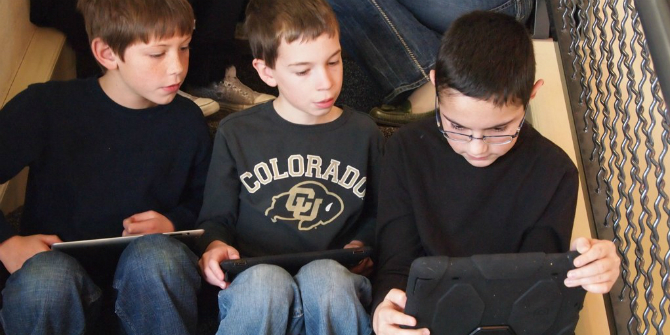How can digital library systems help teachers support children’s reading for pleasure?
By Blog Editor, IOE Digital, on 9 October 2017
Natalia Kucirkova & Teresa Cremin.
Children need to be able to read well to function in society and their engagement as readers needs nurturing from birth. Digital library systems offer enormous opportunities to tap into children’s interests and enhance teachers’ skills as literacy mentors.
They can help teachers and children find relevant content, archive readers’ responses to individual books and share them with others on a large scale. These systems can support reading for pleasure, acting as free book depositories (e.g., International Children’s Digital Library), providing tailored recommendations for new titles on a regular basis (e.g., Epic!) and offering children multimedia story experiences as in a virtual library (e.g., StoryPlace). Teachers’ resistance or openness to the sustained use of such technologies dictates their potential to make a difference to children’s learning.
In our new paper in the Cambridge Journal of Education we explore (more…)
 Close
Close




 While children’s reading experience is being transformed with digital reading formats, personalised and interactive books allowing for more personalisation, there are risks around the data this releases. Natalia Kucirkova and Rosie Flewitt identify four main areas of concern and call for regulation.
While children’s reading experience is being transformed with digital reading formats, personalised and interactive books allowing for more personalisation, there are risks around the data this releases. Natalia Kucirkova and Rosie Flewitt identify four main areas of concern and call for regulation. 